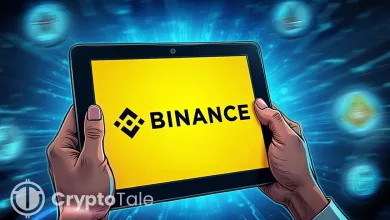The Blockchain Bulletin, Apr 16: Phantom Faces Lawsuit Over $500K Hack

Hey folks! Welcome to the latest edition of the Blockchain Bulletin, where we provide significant developments that took place over the last 24 hours in the crypto world. Phantom, supporting Solana, Ethereum, and Bitcoin, is facing a $3.1 million lawsuit due to a security vulnerability that allowed hackers to steal $500,000 worth of meme coins from users. The complaint claimed that a cybercriminal accessed the plaintiff Liam’s account by exploiting Phantom’s browser extension.
The attacker had successfully extracted Liam’s decrypted private key from the browser’s working memory and thereby gained unauthorized access to the cryptocurrency stored in three of Liam’s Phantom wallets. The suit alleged that Phantom did not have robust safeguards as hackers bypassed the security measures, including a multi-factor authenticator.
Meanwhile, the Financial Intelligence Unit (FIU) of South Korea banned several crypto exchanges following a regulatory crackdown. Around 14 cryptocurrency exchange apps, including major platforms like KuCoin and MEXC, were removed from the Apple App Store. The crypto crackdown move, initiated on April 11, is part of the South Korean government’s ongoing efforts to combat unregistered foreign operators offering services to its local users.
Related: Binance and KuCoin Outage Exposes Crypto’s Cloud Dependency Risks
The FIU had already taken similar actions earlier in March when it restricted these exchanges on the Google Play Store. South Korea’s government is ramping up scrutiny of the crypto industry, aiming to regulate foreign exchanges and protect local investors from unregulated services. On the other hand, Bo Hines, the Executive Director of the Presidential Digital Asset Advisory Committee, proposes the instant setting up of a national Bitcoin reserve.
In an interview, Hines reiterated that the U.S. should do something now, lest it pool resources for competition within digital currency. He suggested creative, budget-neutral strategies to accumulate Bitcoin, such as using tariff revenue or revaluing the government’s existing gold certificates. Hines’ proposal underscores the growing recognition of Bitcoin as an important asset for investors and national governments.
Meanwhile, an outage at Amazon Web Services (AWS) caused disruptions for leading cryptocurrency exchanges such as Binance and KuCoin. The connectivity issues, which started at 1:15 a.m. PDT, were resolved at 1:51 a.m. PDT, leading to temporary service interruptions, including a 23-minute window during which withdrawal from Binance was paused. Although the issues were resolved quickly, they raised questions about the crypto industry’s reliance on centralized cloud infrastructure.
On the market front, a shift in momentum is taking place for Bitcoin. Analyst VirtualBacon stated the possibility of a golden cross in the upcoming months, indicating the climax of a bear market and the beginning of a bull market. Historically, a golden cross is regarded as a powerful indicator for price appreciation, although early gains may be lost by those waiting for confirmation.
Related: Will Ethereum Bounce at Critical $1,546.55 Support Level?
On the other hand, XRP was trading above $2.10 mark on Tuesday with support from the 21-week exponential moving average (EMA). The critical level is at $2.25 in resistance, which XRP must succeed in breaking to confirm the bullish trend continuing. Should XRP close above $2.10 and below $2.25, it would likely start to validate an indication of the bottom achieved at $1.96 on April 7 before continuing its upward trend. According to analyst Egrag Crypto, while $2.25 is vital for XRP to keep its upward momentum, a clean break above this level would open the door for another robust continuation of the current bullish trend.
However, as of press time, the asset is trading at $2.07, exhibiting a dip of 3.87% over the past 24 hours. Even as these events happen, there is still movement in the cryptocurrency market due to continuous regulatory actions, technical innovations, and market disruption. From Phantom’s hacked security to the restriction of exchanges in South Korea and the government’s potential Bitcoin reserve, it is evident that the changes in the crypto space have been huge.




